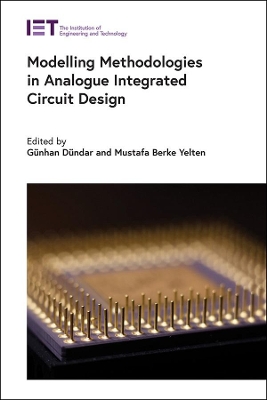Materials, Circuits and Devices
1 total work
Modelling Methodologies in Analogue Integrated Circuit Design
Modelling Methodologies in Analogue Integrated Circuit Design provides a holistic view of modelling for analogue, high frequency, mixed signal, and heterogeneous systems for designers working towards improving efficiency, reducing design times, and addressing the challenges of representing aging, variability, and other technical challenges at the nanometre scale.
The book begins by introducing the concept, history, and development of circuit design up to the present day. The first half of the book then covers various modelling methodologies and addresses model accuracy and verification. Modelling approaches are introduced theoretically along with simple examples to demonstrate the concepts. Later chapters approach modelling from the application point of view, including case studies from the vast domain of integrated circuit design.
Topics covered include response surface modeling; machine learning; data-driven and physics-based modeling; verification of modelling: metrics and methodologies; an overview of modern, automated analog circuit modeling methods; machine learning techniques for the accurate modeling of integrated inductors for RF applications; modeling of variability and reliability in analog circuits; modeling of pipeline ADC functionality and non-idealities; power systems modelling; case study - an efficient design and layout of a 3D accelerometer by automated synthesis; and sensing schemes for spintronic resistive memories.
